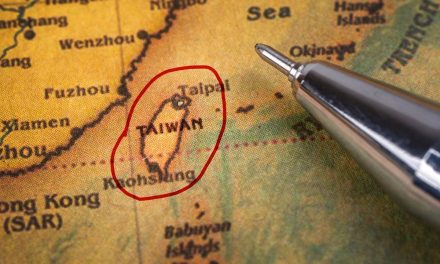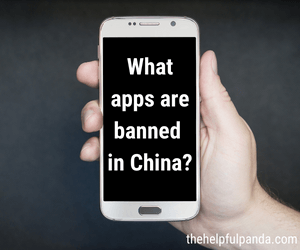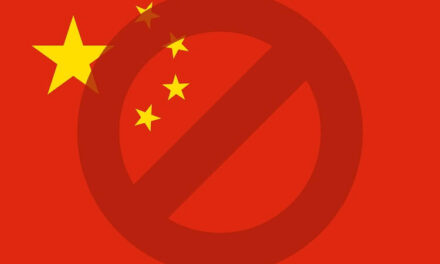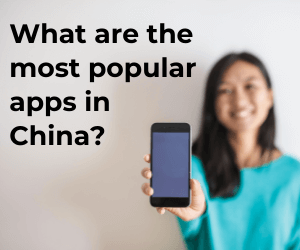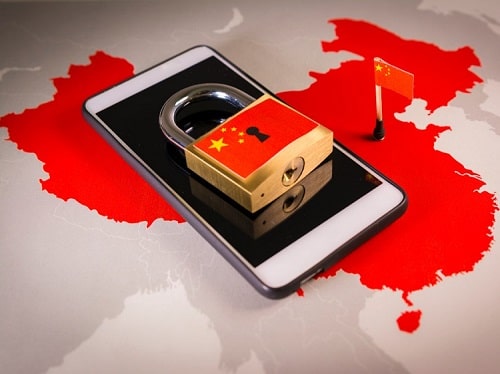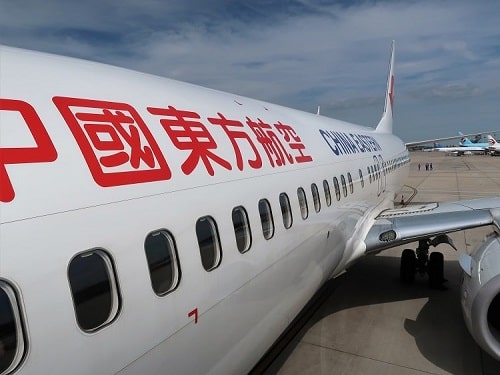Here’s how to refer to people in China, so that you can sound like a pro.
Things like your job, your gender, or even where you’re from, can influence what people call you in China.
Based on my experience living in Shenzhen for the last few years, here are some of the more interesting titles and how to refer to one another.
So, get ready for the mates, buddies, darlings and gaffers of China.
1. Ayí (阿姨) – the clean queens of a nation
An auntie, or āyí, is a woman belonging to an older generation than you.
Typically, an āyí is a female, domestic worker. The term is used respectfully and affectionately.
In China you’ll likely interact with an āyí every day.
These women work hard from the crack of dawn until late into the evenings.
You’ll find them mopping floors in subway stations, emptying trashcans in offices or sorting recycling by community dumpsters. And you’ll always find an āyí or two in the bathroom, keeping it as clean as it can be.
You can check out this guide on Chinese toilets, but my additional piece of advice is to at least give the āyí a nod of appreciation. It can’t be a nice job even at the best of times.
In China, family friends could also be referred to as āyí, as well as, of course, your actual aunts.
As it’s reserved for older women, I am thankfully still waiting for the day I am referred to as āyí, although I fear it could be coming soon.
The grandma who runs the convenience store under my apartment is addressed in this way by everyone who frequents her shop.
I like to call her lǎobǎn though, which always gives her a giggle. Keep reading to find out why.
2. Bǎo’ān (保安) – Our heroes in black polyester

During the COVID era, bǎo’ān would even test people. Image by Amar Shrestha on Shutterstock.
Bao’an is not just a district in Shenzhen!
This word means security guard.
You might not think that this is a super-important term to know, but in China bǎo’ān are everywhere!
They’re at metro stations, outside office buildings, at the entrances of apartment complexes, school gates, shopping malls, supermarkets. Everywhere.
Subsequently, you can go about your time here feeling very safe wherever you are.
These guards are not law enforcement although they do look, and sometimes behave, like they are.
From my experience, bǎo’ān’s are either the sweetest, most helpful people on the planet or they have a massive inferiority complex and strong desire to assert their dominance.
Either way, it pays to try and get along with the bǎo’ān’s, especially if you’re in China for the long term. It’ll make your life easier and work in your favor should you ever need their help.
Just note, you wouldn’t use the word bǎo’ān when addressing one. A simple hello is enough.
3. Měinǚ (美女) – The way to my heart

Who wouldn’t love being called beautiful woman? Image supplied by Olivia Seaton-Hill.
This is my absolute favorite thing to be called because it means beautiful woman!
Expect to hear this in cafes or restaurants, and shops. People in customer service based roles love using this phrase.
It’s often helpful when trying to get out of a sticky situation.
For example, if my online food order in China is delivered late, I can guarantee that the delivery person will call me měinǚ when I hungrily answer the door.
I’ll be honest, it usually does soften me up a little bit. You can’t really be grumpy when somebody is calling you pretty.
At work, I’ll use it to address coworkers when they have helped me or to say good morning, if I’m in an especially good mood.
4. Shuàigē (帅哥) – Reserved for my boyfriend
I am all about equality so of course there is a complimentary term for the gents too!
It’s used pretty much in the same way as meinu is.
Definitely an easy way to make your male friends smile, even if you don’t really mean the compliment.
For more qualified Chinese dating advice, I’d suggest giving the other writers at The Helpful Panda a read.
You could check out this article or this one.
5. Lǎobǎn (老板) – Everyone I really like
This is one I have overused in my time here in China. Mainly when I first arrived.
It just works in so many situations and I believe it was one of the first Chinese words I learned, after my thank yous (xièxiè) and hellos (nǐhǎo).
Lǎo actually means old, but more in the sense of experienced and wise, rather than crumbling and decrepit.
The term lǎobǎn actually means ‘shopkeeper’. However, it has evolved to informally mean ‘boss’.
Now, don’t go rocking up to your next job interview or board meeting addressing everyone as lǎobǎn. This is just a lighthearted way to show a bit of respect.
Recently, a friend was getting his bike fixed and the repairman said to him: “Lǎobǎn, nǐ de zhōngwén hěn hǎo” (meaning: “Boss, your Chinese is good”).
Obviously my friend is not the repairman’s literal boss; he’s a customer. (And if I’m being honest, his Chinese wasn’t that good either.)
In this instance, the repairman was casually showing his admiration, and perhaps appreciation, at my friend’s attempt to speak Chinese.
So, who should you call lǎobǎn?
Shopkeepers, yes. Your actual boss? Maybe, depending on your working relationship. Somebody who does something helpful for you? Why not?!
I will note that females find it hilarious when you refer to them as a lǎobǎn. This informal title is still very much reserved for males.
You most likely won’t offend a female by calling her lǎobǎn. You will make her laugh though and that to me is worth it!
Yes, āyí from my local store, I’m talking about you!
6. Lǎoshī (老師) – A common profession
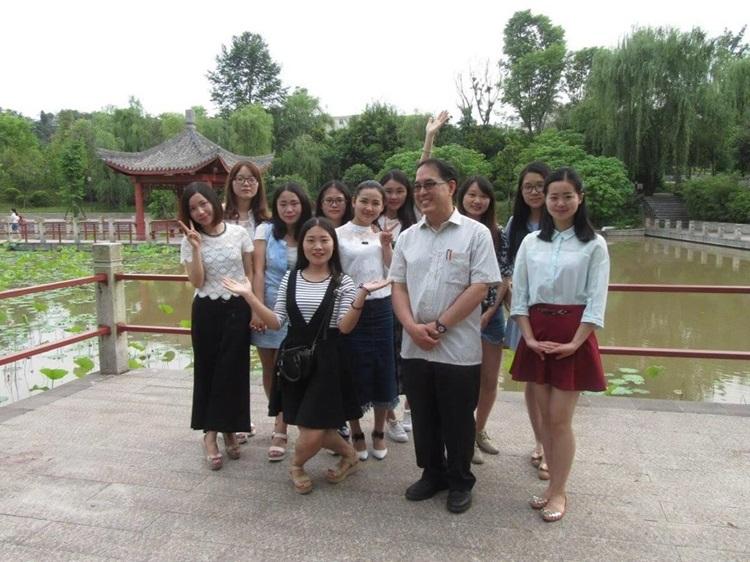
Teaching is a respected profession in China. Image supplied by Kim Ooi.
See? Lǎo is back again.
Many foreigners who move to China for employment start their journey here as teachers, so this is a title you might want to familiarize yourself with.
It means, you guessed it, teacher.
Of course, if your students know a bit of English, they’ll usually just refer to you as “teacher” plus your first name unless you’ve otherwise specified that you wish to be addressed differently.
“Teacher Amy, I forgot my homework.”
Even if you don’t know much Mandarin, at least you’ll know your students are talking to you, or about you, if you remember this word!
You might even find yourself taking on the role of the student here in the Middle Kingdom. If you’re anything like me, you’ll definitely want to make a good impression on your teacher.
You should use your teacher’s family name followed by lǎoshī to respectfully address them.
For example, I addressed my Chinese teacher as “Huáng lǎoshī” (Huang being her family name) until she told me that she actually preferred just being called by her English first name.
There’s often no need to be so formal, but the gesture is certainly appreciated.
7. Fúwùyuán (服務員) – We all gotta eat and drink

If you call “fúwùyuán”, they will come. Image supplied by Mike Cairnduff.
One aspect of living in China I found particularly jarring to come around to was the experience of dining out. In particular, getting the attention of my server.
I’ve paid my dues in hospitality and do my best to treat staff with the upmost respect, always minding my manners and waiting for them to have a quiet moment before making subtle eye contact to engage their attention.
Things in China are very different.
When in a bar or a restaurant and trying to catch your server’s attention, you can simply raise your hand and say, or even shout, “fúwùyuán”. This means waiter or waitress.
If your server is busy, or doesn’t hear you, it’s perfectly acceptable to just keep your hand in the air or wave at them until they notice you. Or, just yell louder!
I always feel a bit like a school kid who’s desperately trying to catch the teacher’s attention.
Some places will even have small battery-operated lamps which you can wave to help attract attention.
You can use this term in bars, restaurants and even cafes. Anywhere you’re getting table service, fúwùyuán is the name to call.
8. Péngyou (朋友) – Some have few, some have many

You’ll get to meet new péngyou everywhere in China. Image supplied by Mike Cairnduff.
I hope, whether you visit China as a tourist, student or to work that you get plenty of use for this word.
Péngyou means friend!
From this stem word, you can add words to easily create longer versions:
- Nán péngyou (男朋友) – boyfriend
- Nǚ péngyou (女朋友) – girlfriend
- Xiǎo péngyou (小朋友) – little friend (a common way to address young children)
I wonder what else we could come up with. Leave a comment if you have any fun ideas!
9. Wàiguórén (外国人) – Get used to hearing this
I can’t really talk about this honorable title without mentioning the other: lǎowài (老外).
Both terms basically mean ‘foreigner’.
Lǎowài is less formal than wàiguórén.
It’s very common for people in China to pass comment on your foreignness. Often, this isn’t done subtly and at times is accompanied by points and giggles.
As I’ve said before in previous posts, this usually stems from a place of curiosity. On the whole, there is nothing malicious in this interaction, though some people believe lǎowài is an offensive term.
I do understand that it can be annoying.
My favorite response is to point back and say with amazement “Zhōngguó rén!” This means Chinese person.
People acknowledge me as a foreigner, so I acknowledge them as a local. Fair is fair!
This response tends to make people crack a smile and often breaks the ice a little, paving the way for my incredibly basic Chinese language skills to shine and make many péngyou’s!
10. Shīfù (师傅) – Jack of all trades
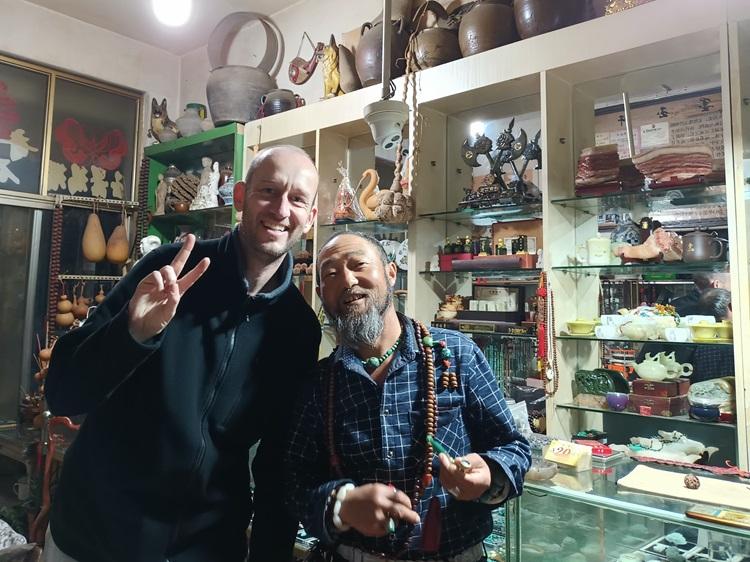
This is the kind of guy you would call shīfù. Image supplied by Mike Cairnduff.
A shīfù could be a lot of different people. The word means master, or skillful person.
Unlike a master and his dog, an element of respect and knowledge is attributed to this person when we describe them as a master.
Repairmen, painters, plumbers, mechanics, and taxi drivers, to name a few skilled professions, are all shīfù.
There are some historic and religious usages of the title too, but I’m trying to keep this post fun and lighthearted so I’ll save all that for another day.
Don’t know which word to use?
If you’re unsure, make an educated guess. A lot of the time, people will just be impressed that you know any Chinese at all.
Effort is always appreciated.
I think lǎobǎn is always a solid shout as this can be used in a jokey manner. If somebody isn’t really the boss, they’ll likely laugh but still feel flattered that you think so highly of them.
It’s a win-win situation.
If you don’t feel brave enough to crack jokes just yet, then stick with péngyou (friend).
Chinese people who are on familiar terms with each other may use a word like ‘small’ or ‘big’ followed by the surname. There are countless variations of the initial word, and can even include words that refer to their appearance like ‘fatty’.
You can do this too, if you’re sure that’s what the person wants to be called.
Psst! A quick travel tip
Are you heading to China soon?
If you want to use Wi-Fi in China, you won’t be able to survive without a virtual private network (VPN) on your phone.
The Chinese internet is censored and without a VPN you’re not going to be able to access all your favorite sites and apps like Instagram, Facebook, YouTube, Gmail, Google, and many more.
Just remember to download the VPN before you arrive as VPN sales are blocked in China.
You can see the best China VPN here or skip the review and go straight here.
I’ve scratched the surface on how to refer to people in China
The ways in which we refer to people differs vastly from culture to culture, and China has a history that goes back thousands of years. I’d encourage you do your research before visiting.
This comprehensive A-Z guide might be just what you need to start planning your visit to China.
Of course, there are other titles, roles and terms of endearment which can be used here in China. The terms I’ve mentioned are the ones I find myself most commonly using on an almost daily basis.
Did I miss your favorite one? Do let me know!
I hope you enjoyed my article on how to refer to people in China. I’ve also previously shared some amazing facts about China which is worth a look.
You can also try these China trivia questions and see how smart you are.
Main image credit: Lesia Povkh on Shutterstock.
FAQ about how to refer to people in China
How do you address people in China?
If you know their name, you can say hello (nǐhǎo) followed by their name, which is surname followed by first name. You can also refer to the person in other more generic or friendly ways, depending on things like their gender or profession.
Is there a general term to refer to someone in China?
If you don’t know the person’s name, you could use péngyou (friend), or lǎobǎn (boss) for a shopkeeper.
Is it rude to yell out ‘waiter’ in Chinese?
It may come across as rude in western culture to call out for the waiter’s attention, but in China it’s perfectly normal and often the only way you can get service.



